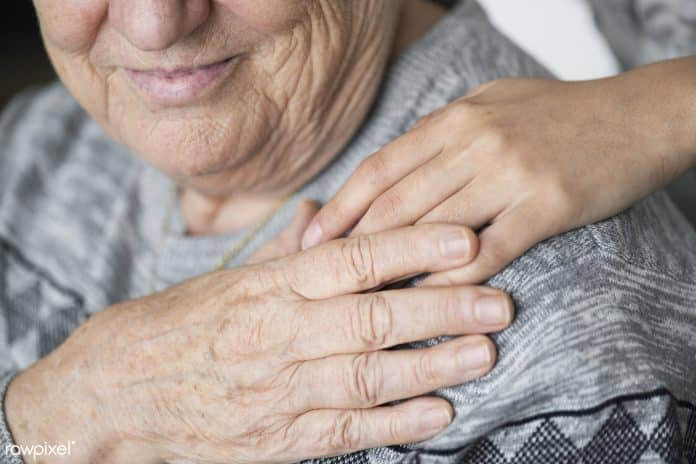Rajita, an 80-year-old widow, was invited to move in with her daughter. Within a short span of time, she was swindled out of her assets including her own house, and subjected to mental, physical and financial abuse. The perpetrator – her daughter. What could Rajita have done to protect herself? Are there services that people like her can avail?
A team of experts recently got together to explain to seniors in Sydney’s Indian community about what constitutes abuse, and the systems in place at the government and community level to help prevent it. They spoke at an information forum organised by AASHA (Australian-Indian Aged Care Support Holistic Association) at Blacktown Senior Citizens Centre. The event attracted some 200 community members.

Although Rajita was a fictitious case, the panellists seemed to indicate that such exploitation is rife, even among South Asian communities that are family-oriented and where parents live with their adult children as tradition recommends. The expert panel included a senior consultant from Elder Abuse Hotline; a senior constable from NSW Police; a solicitor from Senior Rights Service, and a Financial Information Services Officer from the Department of Human Services.
Diana Bernard of the Seniors Rights Service acted as moderator. AASHA director Bijinder Dugal said many older members of the Indian community are unaware of how to get help when needed, or, for cultural reasons, are often reluctant or scared to come forward if they need assistance.

At the very outset, Vivienne Duval, Senior Consultant at Elder Abuse Helpline and Resource Unit explained that elder abuse could take five forms: psychological abuse, financial abuse, neglect, physical abuse and sexual abuse. Regarding financial abuse the forum provided insight into issues such as gifting money to relatives and its potential effect on pensions, and the risks of lending money without financial advice.
Solicitor Nalika Padmasena of the Senior Rights Service explained how Rajita could have avoided the financial abuse. “The victim should have entered into an agreement with her daughter and her family regarding how her money will be used, and how the common expenses like electricity will be divided.”

“We want people to understand their legal rights in assisting their children financially and in being able to protect themselves,” Diana said. “By all means help your family, but protect yourselves first.”
Raji Selvakumar, Financial Information Services Officer from the Department of Human Services shed some more light on the case. “Although we do not encourage people to give away the money they have, we don’t have any control over how they spend it. The rules for gifting, however, suggest that the gift amount should not exceed $10,000 per financial year and not more than $30,000 in 5 years. If you do exceed this, it’s considered as an asset on your record.”
| Elder Abuse Helpline | 1800 628 221 | elderabusehelpline.com.au |
| Senior Rights Service | 1800 424 079 | info@seniorsrightservice.org.au |
| Financial Information Service | 132 021 | humanservices.gov.au |
| AASHA Australia Foundation | info@aashaaustralia.org.au | |
| Law Access NSW | 1300 888 529 | lawaccess.nsw.gov.au |
| NSW Civil and Administrative Tribunal | 1300 006 228 | ncat.nsw.gov.au |
| NSW Trustee and Guardian | 1300 364 103 | tag.nsw.gov.au |
| Welfare Rights Centre | 1800 226 028 | welfarerightscentre.org.au |
| My Aged Care | 1800 200 422 | myagedcare.gov.au |
Also covered were topics such as, power of attorney, how organisations such as Seniors Rights Service and the Elder Abuse Hotline can provide assistance, and the role of the police force in guaranteeing older people’s financial, legal and personal rights.
Senior Constable Jason Roughley offered the police perspective on the issue, his core message being to speak up about mistreatment. “Domestic violence is our foremost priority and we encourage people to not hold back any type of communication and request them to come forward and speak up if they are facing any sort of domestic violence or abuse.”
AASHA’s Dr. Praful Valanju took this up in depth by bringing out the cultural stigma associated with such abuse. “The reason why people hesitate in our community to get legal and professional help in situations like these is our culture,” he said. “The family name is of utmost importance and we do everything possible to protect it, even suffering personal indignity.”

AASHA representatives also indicated the way in which their foundation can assist and support seniors on matters raised at the event. Founded in 2015, AASHA (a Hindi word meaning ‘hope’), claims to “celebrate ageing as a way of life and create proactive awareness about dementia and seniors rights”.
The discussion brought out some valuable insights from law enforcement personnel, and information about aid available in situations like these. When the gathered senior community were given opportunities to ask questions, it was obvious there was much anxiety: a number of questions and doubts were raised to resolve the issues they were facing. Some of these included the waiting periods to get into aged care facilities, struggling to receive benefits from Centrelink, accessing healthcare facilities, transferring properties and other assets to children and moving in with them, inability to go back to their home country for a longer period due to certain rules by Centrelink that would stop or delay their pensions. Panellists patiently answered all their questions and a lot of information came through on how to obtain legal, financial and government help when required.
While on one hand we pride ourselves for the values and traditions of our culture, on the other hand the reality is that our community needs legal and government aid to improve the personal situations at home. Hindu philosophy teaches us to revere our parents like gods. While we may find it challenging to follow this in today’s time, let’s at least pledge to treat our own families as our world.




